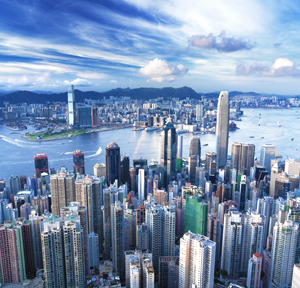Offshore
One Of World's Richest Men Shifts Empire To Caymans From Hong Kong

In a move raising questions about Hong Kong's status as a corporate hub, one of the richest tycoons in the world has moved his business empore from the Asian city to the Cayman Islands.
(Updates with reference to share price, index of billionaires.)
Li Ka-shing, one of the richest men in Asia and the world has stirred controversy about his interest in Hong Kong by setting out a large restructuring of his business empire, shifting its corporate base to the Cayman Islands, media reports said.
Li, who is the chairman of Cheung Kong (Holdings) and its
subsidiary Hutchison Whampoa, with a total market value of
HK$661.68 billion ($85.34 billion) – has explained that all of
his firms’ non-property assets, such as ports,
telecommunications, retail, infrastructure and energy, will be
placed into a newly created company, CK Hutchison Holdings (CKH
Holdings), incorporated in the Cayman Islands, media reports
said. Property assets will also go into a Caymans-domiciled
structure, Cheung Kong Property Holdings. It will seek a separate
listing on the Hong Kong stock exchange.
Press reports said the separate listings and change in the
structure will enable shareholders to increase the value of their
holdings, which in the past had been hampered by the complex
structure.
Li Ka-shing is on track to win back his title as Asia’s richest person as shares in Cheung Kong Holdings Ltd rose by the biggest amount in 17 years following his announcement of the reorganisation plan, according to Bloomberg. The tycoon has a $30.8 billion fortune based on the trading of his shares as of 11:15 a.m. local time, which puts him almost $3 billion ahead of Jack Ma, chairman of Hangzhou, China-based Alibaba, with a worth of $28.2 billion as of Jan. 9, according to Bloomberg Billionaires Index.
Li Ka-shing has been offloading assets in Hong Kong and Mainland
China, and acquiring companies such as utilities and energy
businesses overseas.
A report in the New York Times quoted Li’s companies as
saying that the restructuring announced late on Friday – after
stock markets were closed - was aimed at removing the discount
that investors have typically applied to their shares because of
the tiered shareholding structure of the Li family’s stake. At
present, the Li family owns 43 per cent of Cheung Kong directly,
which in turn owns about 50 per cent of Hutchison.
Such a move out of Hong Kong will raise eyebrows at a time when
offshore financial locations such as the Cayman Islands, British
Virgin Islands, Jersey and Guernsey, among others, have been
attacked by campaigners who claim these places are secretive and
allow business owners to minimise their tax bills. In defence,
such centres, and organisations such as Washington DC think tank
the CATO Institute, have argued these financial hubs operate
within the law and actually boost overall economic activity by
encourage governments to keep taxes lower than would otherwise be
the case.
Not shunning Hong Kong
Li has rejected suggestions that he is turning his back on Hong
Kong.
"More than 75 per cent of companies that have listed in Hong Kong
in the past 10 years or so are incorporated in Cayman Islands,
including state-owned enterprises. Have they also lost confidence
in Hong Kong?" said Li.
His move in some ways was mirrored last year by Jack Ma’s
decision to hold the IPO of Alibaba on the New York Stock
Exchange, rather than in Hong Kong. The Alibaba IPO raised
eyebrows among those who saw that decision as a snub to the Hong
Kong market.
A report noted that when asked if the restructuring will help his
elder son, Victor Li Tzar-kuoi, to take over the empire, he said:
"As a person reaching a certain age, you want the company's
successor and all the executives here to operate more easily and
to do well."
A report in The South China Morning Post quoted a
director in one of Li’s businesses as saying the restructuring,
with the shift in corporate domicile to the Cayman Islands, had
not been triggered by the unrest in Hong Kong of recent months.
(Pro-democracy protesters have objected to the Chinese
authorities’ attempts to impose their own candidates for Hong
Kong government elections.)